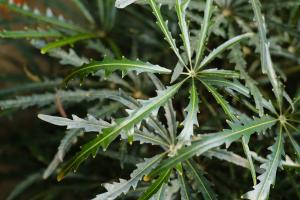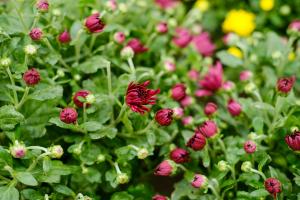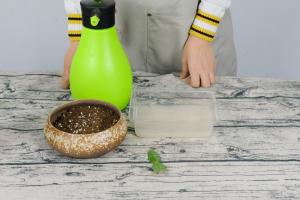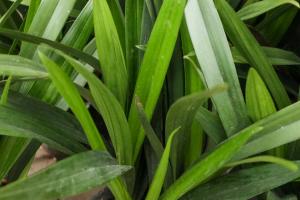Title: How to Eliminate Plant Fungus: Tips and Techniques
Are you tired of pesky plant fungus ruining your beautiful garden? Fungal diseases can be a common issue for gardeners, but with some knowledge and effort, you can prevent and eliminate plant fungus. In this article, we鈥檒l go over some effective tips and techniques for getting rid of plant fungus.
Identify the Fungal Disease
The first step in eliminating plant fungus is to identify the specific disease affecting your plants. Different fungi can cause various symptoms such as leaf spots, powdery mildew, root rot, and more. Once you鈥檝e identified the type of fungus, you can choose the appropriate method for eliminating it.
Improve Your Plant鈥檚 Environment
Fungal diseases are often caused by poor growing conditions, such as too much moisture, poor airflow, or inadequate sunlight. To prevent future fungus infestations, you should improve your plant鈥檚 environment. Provide proper drainage, space plants appropriately, prune regularly, and use fungicide or insecticide to eliminate pests that may weaken your plants.
Use Organic Fungicides
There are many organic fungicides available that can eliminate plant fungus without harming your plants or the environment. Some effective options include neem oil, baking soda, chamomile tea, and garlic extract. These natural remedies work by targeting and disabling the fungus while not harming the plant itself. It鈥檚 important to follow the instructions carefully to ensure the proper use of these remedies.
Remove Infected Plant Material
Infected plant material must be removed promptly to prevent the spread of fungus. This includes leaves and stems with visible signs of the disease, as well as dead plant material. Be sure to dispose of infected material properly, as the spores can spread easily through the air or soil.
Practice Good Sanitation
Good sanitation can prevent the spread of fungal diseases. Tools and equipment should be cleaned thoroughly after every use, especially when moving from infected plants to healthy ones. Also, avoid walking through moist soil, as this can carry fungal spores from one area to another.
Conclusion
Plant fungus can be a frustrating and damaging problem for gardeners, but with the proper knowledge and effort, it can be eliminated. Remember to identify the disease, improve the plant鈥檚 environment, use organic fungicides, remove infected plant material, and practice good sanitation to prevent the spread of the fungus. With these techniques, you can keep your garden healthy and beautiful.

 how many times do yo...
how many times do yo... how many planted tre...
how many planted tre... how many pine trees ...
how many pine trees ... how many pecan trees...
how many pecan trees... how many plants comp...
how many plants comp... how many plants can ...
how many plants can ... how many plants and ...
how many plants and ... how many pepper plan...
how many pepper plan...































